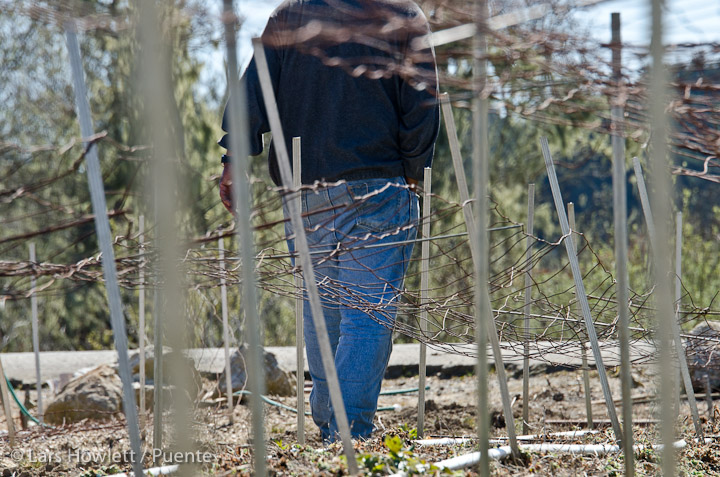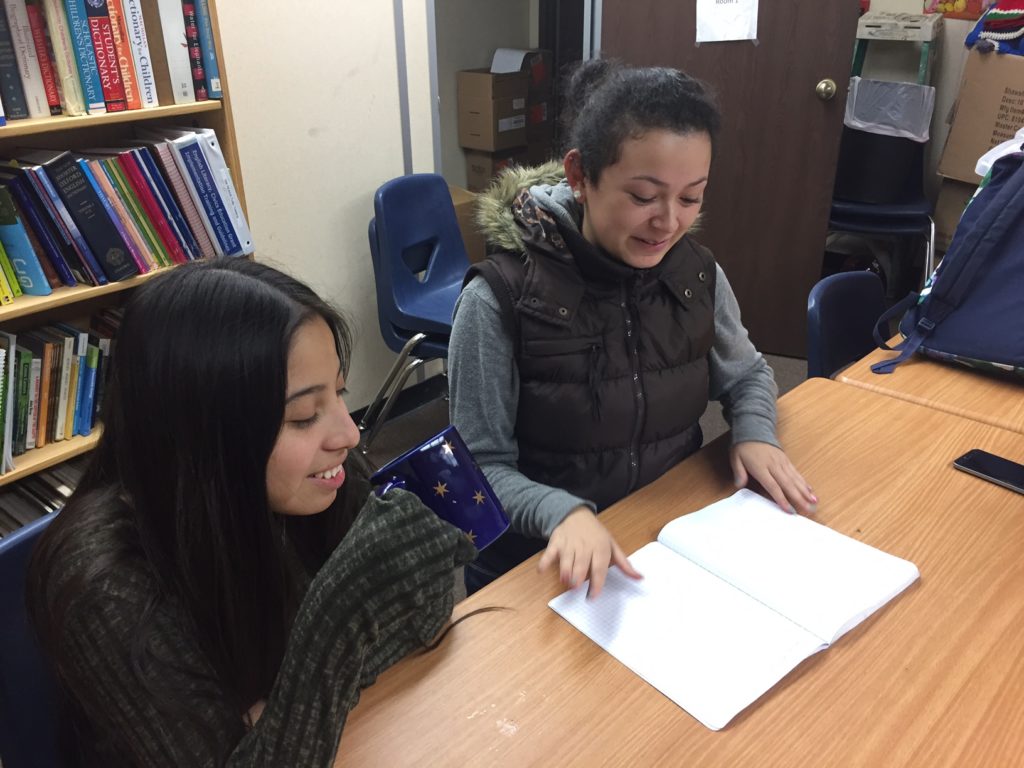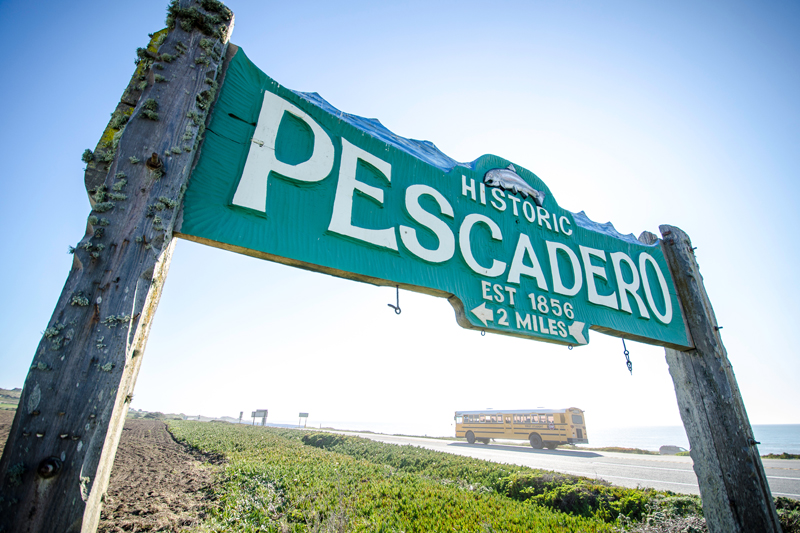 Puente’s weekly La Sala program, its Sunday afternoon “living room” in Pescadero, is a place for male farm workers to gather, eat, play dominoes, and find some pleasure in the company of other single men working back-breaking jobs from dawn to dusk. Sometimes they play guitar, or swap stories about their hometowns, their wives, their children and their other family members. Some they have not seen for well over a decade.
Puente’s weekly La Sala program, its Sunday afternoon “living room” in Pescadero, is a place for male farm workers to gather, eat, play dominoes, and find some pleasure in the company of other single men working back-breaking jobs from dawn to dusk. Sometimes they play guitar, or swap stories about their hometowns, their wives, their children and their other family members. Some they have not seen for well over a decade.
One thing they almost never talk about: depression. It’s not unusual for male and female farm workers to struggle with depression and other mental health issues. Puente’s Behavioral Health and Recovery Services team works hard to assist them with a constellation of programs, from individual counseling to regular group discussions.
Puente also offers comprehensive mental health services to individuals, couples, families and children by appointment. Its educational services include drug and alcohol prevention, child abuse and domestic violence awareness, and healthy dating groups for students in grades 5-12.
Puente’s recent mental health outreach extends to male farm workers as well. In November, a member of the Behavioral Health and Recovery Services team gave a first-time presentation at La Sala on the topic of mental health. Sheryl (name changed for this story) wasn’t sure how it would be received, but the men listened very attentively and asked several questions, including about how to access to Puente’s mental health programs, which are free.
That was a good sign. “It is a difficult subject, and it can be seen as taboo,” said Sheryl, who talked to the men. “A lot of them have similar stories – these men have encountered major trauma throughout their lives, beginning when they crossed over the border from Mexico. They’re working long hours, and some of them cope by turning to drugs and alcohol.
“They want to overcome this, but without tools and coping skills it’s very hard to break the pattern,” she adds.
A series of federal immigration sweeps in several states in February, including several towns across Southern California, have likely only added to feelings of depression and anxiety.
The presentation covered basic questions, such as how to define mental health and the symptoms of depression. It introduced some basic coping strategies and shared important resources for support from Puente.
To draw the men into the Spanish-language presentation, Sheryl played two classic Mexican songs – one happy (‘El Mariachi Loco’) and one sad (‘Amor Eterno’). She asked the men to notice how the music made them feel – how the sad song triggered feelings of sadness, and how their moods changed after listening to the joyful song. The message: even small coping skills can be uplifting, and choosing how to cope can be empowering.
Sheryl also showed the men photos of other uplifting activities and pursuits that can help improve mental health, such as playing soccer, praying or meditating, and cooking healthy food.
Ben Ranz has closely observed the struggles of male farm workers he has befriended over the years. As Puente’s Community Engagement Manager, Ranz is not a member of the Behavioral Health team but he has made a few referrals.
“I can be their buddy, but the men need more than a buddy. I’m not trained to deal with the kind of trauma that these folks are experiencing, and the life they face every day,” says Ranz, who has been advocating for a Puente mental health staff presence at La Sala for several years.
The need for mental health support “is huge,” says Ranz. From his perspective, living in such close quarters with other men – in bunk beds, sometimes 13 to a barracks, sharing a bathroom – can exacerbate destructive habits.
“In a world where you live with a bunch of men, I don’t think some people are willing to acknowledge that they’re suffering, or to do anything about it,” shares Ranz.
However, the La Sala presentation “definitely struck a nerve,” he adds.
One of Puente’s most recent popular mental health programs initiated a collaboration between two psychiatric social workers, one from Puente and one placed at Puente by the San Mateo County Human Services Agency. This fall, Puente held regular lunchtime mental health sessions for female farm workers, visiting them at their local farms. They discussed everything from self-care strategies to parenting issues. Many of the women are mothers.
Puente has a robust community program to address maternal depression, thanks to the longstanding support of the Bella Vista Foundation. The farm visits built on the foundations of that program. The social workers facilitated discussions about ways of dealing with stress, trauma and anxiety. The women shared ideas amongst themselves about activities to try, and then went out and tried them. They took their kids to the beach, took walks, and made tamales with their families.
The women talked about happy childhood memories, remembering the resonant emotional connections they once shared with their grandparents and extended families. They practiced deep breathing techniques and body scans. And each woman made her own “vision board” to clarify her own goals for self-care and relationships with family.
The county social worker who helped facilitate the sessions shared that the women were able to do some things they hadn’t thought of doing. They found it relaxing and refreshing. In the end, they said they would have liked more of it.
The last session saw nine men participate, because they wanted to be included, too.
“They come here in survival mode,” says Sheryl, who spoke to the men at La Sala. “At the end of the day, it takes priority over mental well-being.”
Sheryl intends to give more presentations at La Sala – with at least one that focuses on treatment options for drug and alcohol abuse.
Ranz would love to see Puente’s Behavioral Health team develop a regular presence at La Sala, to help build trust. “I think it takes a lot of time for the men to come up to me and say, I need help with this or that problem, no matter what it may be. People would realize that mental health support is always there as well.”






